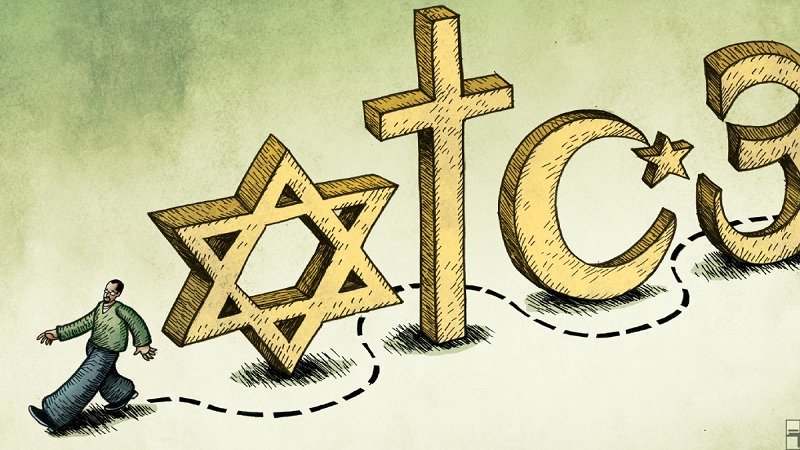 Image Courtesy:thestar.com
Image Courtesy:thestar.com
I ask myself, would Bhagwan Ram who thought nothing of giving up his royal due in Ayodhya have applauded the zealous assault on the erstwhile Babri mosque?
Would Jesus have been heartened by the crusades fought in his name?
Would Prophet Mohammed have approved of the beheading of a journalist for the preservation of his honour?
I think not.
God gave us the prophets for human betterment. We made them sectarian, religious heads.
The question to ponder is this: can any coercive incorporation of human beings into sects and denominations ever be compatible with the intentions of prophets? Can any pursuit of faith that does not issue from free will ever be either truly soulful or sanctified?
The current debate about the seemingly antagonistc claims of the right to free expression and the exalted status of religions thus seems a faulty one ab initio.
No prophets have ever instructed that calumnies against them be made occasions for consolidating rabid h ordes detailed to bolster their standing among men, or to snatch consent from the recalcitrant.
Allegiance to any faith is hardly allegiance that is not freely given, and no denial of faith, however crudely expressed, can be offensive to prophets whose appeal has always been to a voluntary and felt make-over of the individual soul and psyche.
In our current worldwide contexts, it would be well for religious affcionados to recognize that laicite is as much a faith as any other. And if votaries of secularism make no distinctions between other faiths that contest secularism, the assumption of malice only bespeaks an insecurity of beliefs that feel threatened by other beliefs.
After all, no prophets of any religion have been in history spared by caricaturists and mavericks in their bid to assert the freedom of expression.
Nor is it any fact that religions are monoliths of belief systems. Within Sanatan and Buddhist thought reside eloquent traditions of atheism; within Christianity exist denominations that deny the divinity of Christ; and within the world of Isalm there are traditions who remain opposed to dogma, teaching a non-discriminatory humanism that leaves no one out.
It would be well, therefore, to recognize that the freedom of thought and expression is as integral to religious faiths at their truest and noblest as it is to secularists who advocate separation of church and state even though many of them may well retain privately conducted forms of spiritual conviction and even forms of personal prayer.
And all belief systems must remain rather hollow should they descend to violence instead of meeting annoyances with reason and an unshakable conviction that requires no forced or crude assertion.
God, we are told, made man and woman. Men made religions. Iti is hardly to be thought that any religion can be ultimately persuasive that does not place the principles of humanism above sectarian dogmas and ritualistic practices.
Of all things in life, freedom of expression must be the bed rock of the faiths we espouse, if the work of the prophets is truly to be understood and accomplished.
No slavery is worse than a slavery to a faith that is not willingly adopted and felt in the bone. And our plurality of faiths, including secularism, demnds that we respect convictions other than our own as we do laws democratically legislated that affect us diversely.